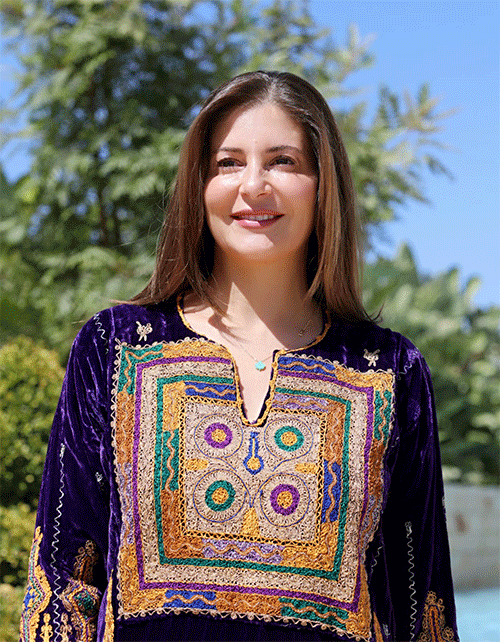Hanan Jarrar
The African Union (AU) and its predecessor, the Organisation of African Unity (OAU), has been one of Palestine’s most important and loyal allies. Israel’s illegal occupation and colonisation of Palestine and its oppression of the Palestinian people has featured prominently at the OAU and, later, AU summits, reflects the deeply-rooted bonds and historic solidarity between the liberation and anti-colonial struggles in Africa and those of the Palestinian people.
It is unfortunate, then, that some African countries with proud anti-colonial legacies and histories of recognising and fighting injustice, are keen on welcoming Israel – a state which the OAU in 1975 declared has the same racist structure and policies of the apartheid regime in South Africa.
At last year’s Heads of State Summit, the AU highlighted Israel’s “relentless pursuit of colonisation and annexation measures and [continuing] to act in bad faith and in total contradiction of ending the occupation [of Palestine].” The summit underlined the Israeli military’s use of lethal, unlawful force against Palestinian civilians and reiterated the illegality of all Israeli settlements in the West Bank, East Jerusalem and the Syrian Golan Heights.
At this year’s summit, however, Israel gained support at the African Union even though in the last year, Israel’s occupation of Palestine has not ended; its debilitating siege of the Gaza Strip continues, and its colonisation of Palestine has intensified. If Israel’s behaviour has not changed, why, then, have some African nations altered their stance on Israel?
Why reward an apartheid state?
What has changed in the last year, however, is that an increasing number of human rights groups have declared that Israel is practising apartheid against the Palestinians. Israel’s largest human rights group, B’Tselem acknowledged that the Israeli regime is an apartheid regime. Human Rights Watch found that the Israeli government’s policy to maintain the domination by Jewish Israelis over Palestinians across Israel and the Occupied Palestinian Territories amounts to apartheid. Amnesty International has concluded that the Israeli government’s policies towards the Palestinian people met the international legal definition of apartheid.
It is heartening to note that there are governments and peoples on the continent that have steadfastly refused to accept an apartheid state having observer – or any other status – at the AU. Namibia, and the rest of the Southern African Development Community (SADC) region were joined by Algeria, Nigeria, and Tunisia amongst others, inconsistently insisting that the AU remain true to its commitments and pronouncements on Palestine.
Israeli apartheid cannot be legitimated at the African Union.
Observer status allows Israel to be part of certain AU meetings and debates, potentially allowing it to justify its apartheid policies against the Palestinians. The OAU denied South Africa’s apartheid regime the opportunity to defend itself at its meetings. Israel should be treated in the same way.
AU Commission chairperson, Moussa Faki Mahamat said that Israel’s current diplomatic relations with AU member states justified his decision to grant Israel AU observer status. This issue is not about whether Israeli diplomatic missions exist in Africa. This is about a recognition that comes with attaining observer status in an institution that serves as an anti-colonial beacon. This is a privilege that Israel – a violent occupying power whose actions violate the spirit, objectives and principles of the AU – does not deserve right now.
Upholding the values of the AU
A seven-member Heads of State committee has been tasked with investigating Israel’s observer status. This committee provides some hope that the values of the AU will be upheld and that the will of the African people – who stand firmly against Israeli apartheid and with the Palestinian people – will be implemented.
The Palestinian people hope that the committee will carefully consider the principles and values of the AU Constitutive Act and the African Charter, and that its decisions will be guided by the various resolutions taken on Israel since the AU’s formation.
The African Union must send Israel a clear message that it cannot occupy a people for 55 years, perpetuate apartheid practices, and then be rewarded with the privilege of joining the African family.
Inaction is not an option
Israel has been able to sustain decades of land theft, siege and colonial violence against Palestinians simply because of the world’s failure to act against our occupiers. If the AU accepts Israel as an observer, it risks following the example of much of the international community’s inaction.
African nations did not respond with inaction when it came to opposing South African apartheid. Western powers initially refused to support the UN’s Special Committee against apartheid, preferring “constructive engagement” with Pretoria’s apartheid regime. It was left to African nations like Algeria, Ghana, Guinea, Nigeria, and Somalia – along with others from the Global South – to press for international sanctions against apartheid South Africa.
Like oppressed South Africans, half a century ago, Palestinians are now looking to Africa to help isolate an apartheid regime.
If the AU welcomes Israel with privileges and distinctions, it does not deserve, it effectively gives our Israeli colonisers permission to continue the occupation. Words without actions are meaningless.
* Hanan Jarrar is a Palestinian ambassador to South Africa, Namibia, Malawi and Lesotho.



